Bravo! Rezza Octavia (FPIK Student) Again Achieves International Achievements in the 5th Islamic Solidarity Games

FPIK Undip students made another achievement. Rezza Octavia, a 2018 student from the Marine Sciences Study Program, FPIK Undip, won the International 5th Islamic Solidarity Games Archery, Ministery of Youth and Sports in Turkey. This FPIK student was able to compete with athletes from other countries to get 1 gold medal, 1 silver medal, and […]
“The Challenge of Being a Tropical Fisheries and Marine Scientist” Live at TVRI Central Java
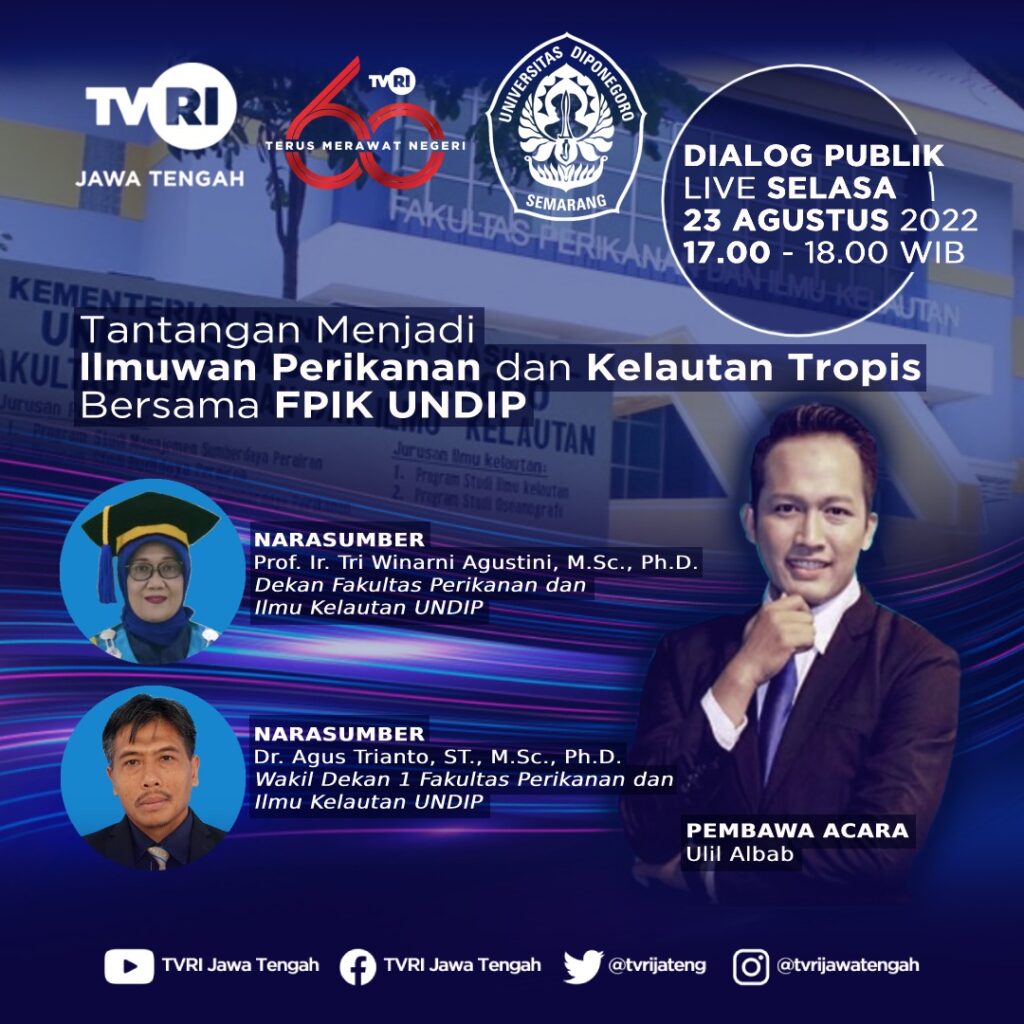
Tuesday, August 23, 2022 The Dean of the Faculty of FPIK Undip, Prof. Tri and Deputy Dean of Academic Affairs FPIK Undip Dr. Agus Trianto was a guest speaker at the public dialogue “The Challenges of Being a Tropical Marine and Fisheries Scientist” live on TVRI Central Java. Indonesia has a very large potential of […]
Capacity Building Educational Staff Marlin Squad 2022
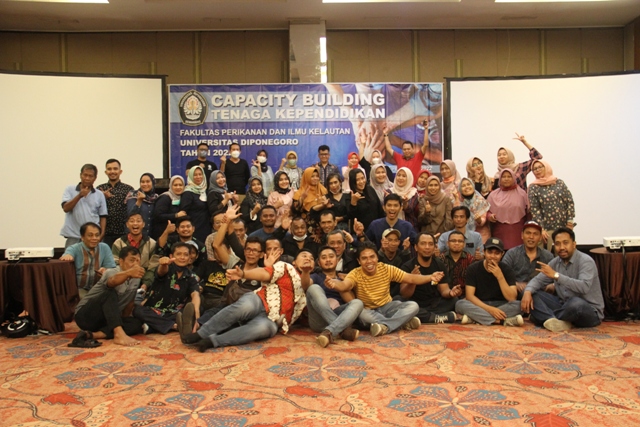
On August 5, 2022, Faculty of Fisheries and Marine Sciences held a Capacity Building Activity at the Jambu Luwuk Hotel, Malioboro, Jogjakarta. This activity aims to increase the capacity and quality of human resources, especially Education Personnel in the Faculty of Fisheries and Marine Sciences. The activity started with remarks from the Dean of the […]
FPIK UNDIP collaborates with PT Delos Maritime Institute (DELOS MARITIME)
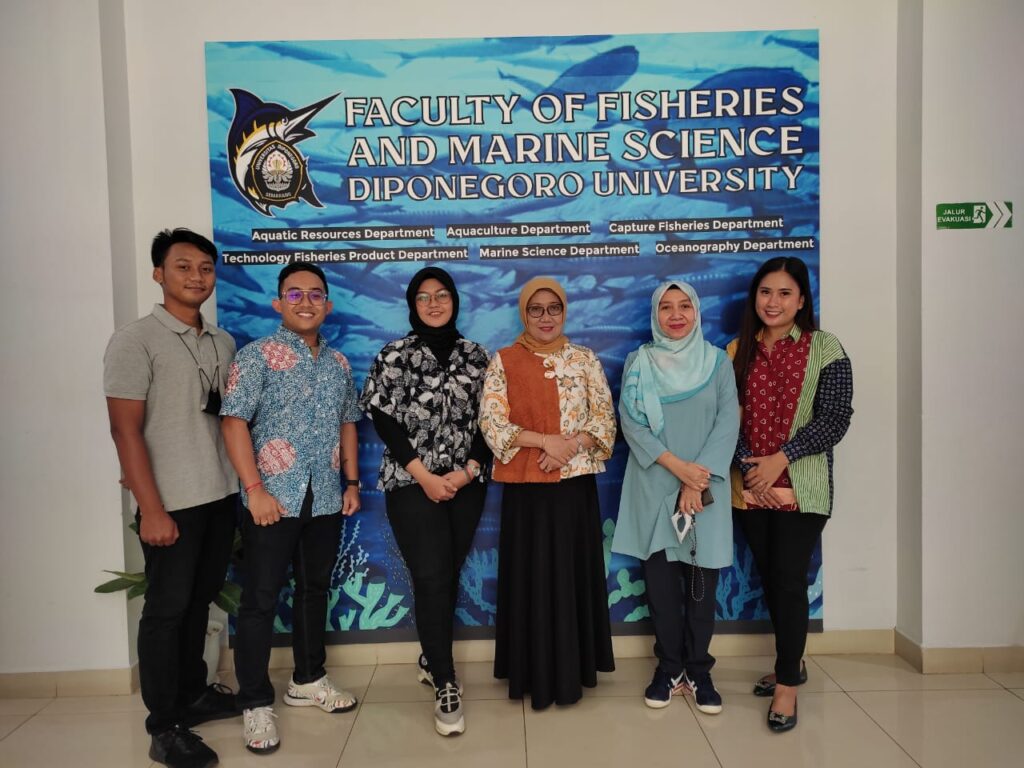
Semarang – Faculty of Fisheries and Marine Sciences, Diponegoro University and Delos Maritime Institute have signed the Tridharma Training and Development Cooperation for Higher Education on Tuesday, July 19, 2022, at Faculty of Fisheries and Marine Sciences, Diponegoro University. The scope of the Cooperation Agreement includes collaboration and cooperation in education activities, research, service, community […]
Internship Programs in Japan with Equal Honors for Workers in Japan 2022-2027
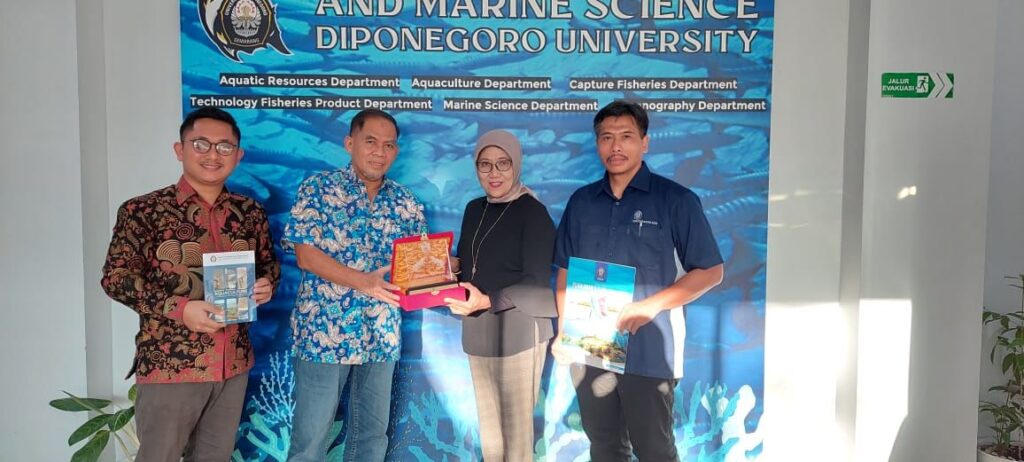
Semarang – Faculty of Fisheries and Marine Sciences, Diponegoro University and PT. Irodori Global Indonesia has signed the Internship Program for Hotate Shellfish Cultivation “Hokkaido” on Thursday, June 7, 2022, at the Faculty of Fisheries and Marine Sciences, Diponegoro University. The Internship Program is the preparation of a place for field work practices and/or apprenticeships […]
EMPOWERMENT OF FISHERMAN GROUPS IN WONOGIRI DISTRICT
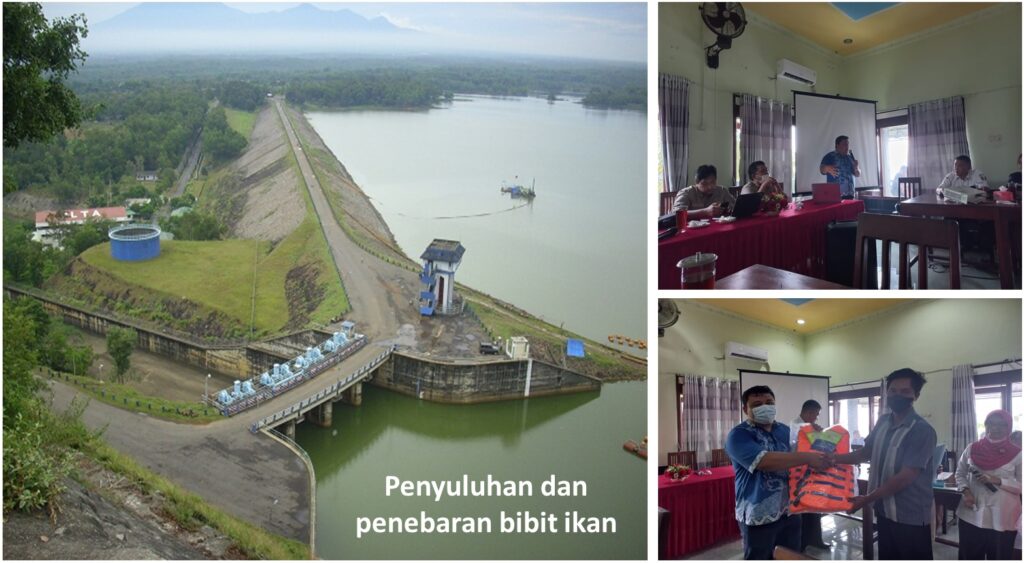
Semarang, FPIK Undip held an activity to empower fishermen’s groups in Wonogiri district on May 25, 2022. In addition, fish seeds were also stocked. The Department of Capture Fisheries Service Team FPIK UNDIP chaired by Bogi Budi Jayanto, S.Pi., M.Si and consists of Prof. Ir Azis Nur Bambang, MS, Prof. Dr. Aristi Dian Purnama Fitri, […]
Effect of Climate Change on Export Potential of Fishery Commodities | Webinar Dept of Capture Fisheries
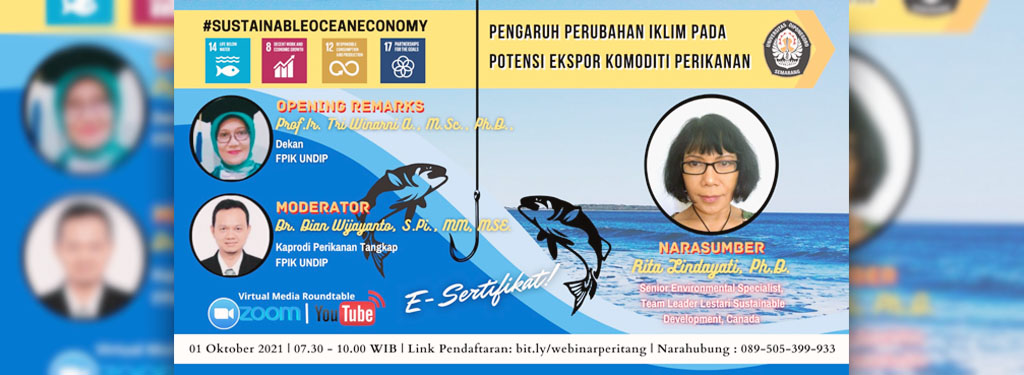
[et_pb_section fb_built=”1″ admin_label=”section” _builder_version=”4.12.0″ custom_padding=”10px||0px||false|false” locked=”off” collapsed=”off” global_colors_info=”{}” theme_builder_area=”post_content”][et_pb_row admin_label=”row” _builder_version=”4.12.0″ background_size=”initial” background_position=”top_left” background_repeat=”repeat” custom_padding=”||0px||false|false” global_colors_info=”{}” theme_builder_area=”post_content”][et_pb_column type=”4_4″ _builder_version=”3.25″ custom_padding=”|||” global_colors_info=”{}” custom_padding__hover=”|||” theme_builder_area=”post_content”][et_pb_text _builder_version=”4.14.3″ text_orientation=”justified” custom_padding=”0px||0px||false|false” hover_enabled=”0″ global_colors_info=”{}” theme_builder_area=”post_content” sticky_enabled=”0″] FPIK, SEMARANG - Semarang (1/10), Department of Capture Fisheries, Faculty of Fisheries and Marine Sciences, Diponegoro University (FPIK UNDIP) held a Webinar which was held […]
In order to prevent the extinction of fish species, FPIK UNDIP students intensify research in Rawa Pening

[et_pb_section fb_built=”1″ admin_label=”section” _builder_version=”4.12.0″ custom_padding=”10px||0px||false|false” locked=”off” collapsed=”off” global_colors_info=”{}”][et_pb_row admin_label=”row” _builder_version=”4.12.0″ background_size=”initial” background_position=”top_left” background_repeat=”repeat” custom_padding=”||0px||false|false” global_colors_info=”{}”][et_pb_column type=”4_4″ _builder_version=”3.25″ custom_padding=”|||” global_colors_info=”{}” custom_padding__hover=”|||”][et_pb_text _builder_version=”4.14.2″ text_orientation=”justified” custom_padding=”0px||0px||false|false” global_colors_info=”{}”] FPIK, SEMARANG – (Source: Suaramerdeka.com) Students of the Faculty of Fisheries and Marine Sciences, University of Diponegoro (FPIK UNDIP) are intensifying research to prevent the risk of extinction of fish species […]
FPIK UNDIP Lecturer Invites Demak Community to Manage Plastic Waste

[et_pb_section fb_built=”1″ admin_label=”section” _builder_version=”4.12.0″ custom_padding=”10px||0px||false|false” locked=”off” collapsed=”off” global_colors_info=”{}”][et_pb_row admin_label=”row” _builder_version=”4.14.2″ background_size=”initial” background_position=”top_left” background_repeat=”repeat” custom_padding=”11px||0px||false|false” global_colors_info=”{}”][et_pb_column type=”4_4″ _builder_version=”3.25″ custom_padding=”|||” global_colors_info=”{}” custom_padding__hover=”|||”][et_pb_text _builder_version=”4.14.2″ text_orientation=”justified” custom_padding=”0px||0px||false|false” hover_enabled=”0″ global_colors_info=”{}” sticky_enabled=”0″] FPIK, SEMARANG - On Saturday (2/10), 10 students of the Faculty of Fisheries and Marine Sciences, Diponegoro University (FPIK UNDIP) class 2018 – 2020, including Fathiyah, Aen, Zalza, Taqiya, […]
Already opened! Commercial Diving Training

[et_pb_section fb_built=”1″ admin_label=”section” _builder_version=”4.10.3″ custom_padding=”0px||0px||false|false” locked=”off” collapsed=”off” global_colors_info=”{}”][et_pb_row admin_label=”row” _builder_version=”4.10.3″ background_size=”initial” background_position=”top_left” background_repeat=”repeat” custom_padding=”10px||||false|false” global_colors_info=”{}”][et_pb_column type=”4_4″ _builder_version=”3.25″ custom_padding=”|||” global_colors_info=”{}” custom_padding__hover=”|||”][et_pb_text _builder_version=”4.13.0″ text_orientation=”justified” global_colors_info=”{}”] FPIK, SEMARANG – [COMMERCIAL DIVE TRAINING AND CERTIFICATION] The Faculty of Fisheries and Marine Sciences, Diponegoro University (FPIK UNDIP) is proud to present “Commercial Diving Training”. This work diving or commercial diving […]
